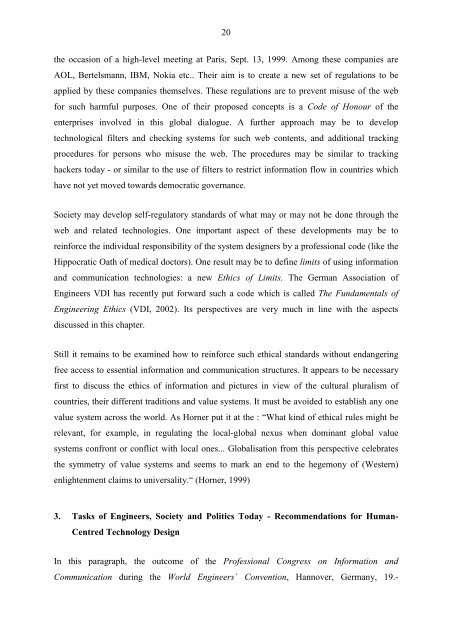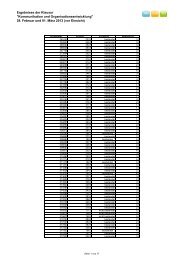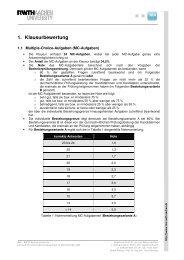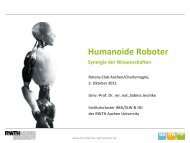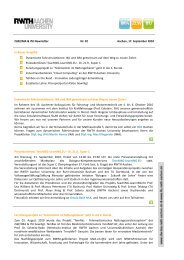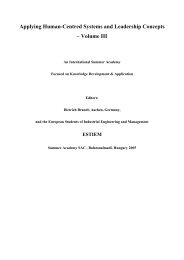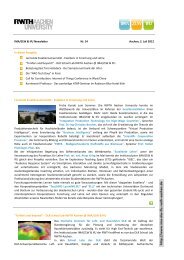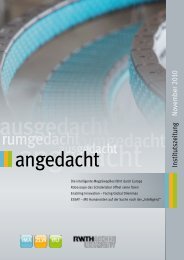Vol. II: Shaping Information and Communication ... - IMA,ZLW & IfU
Vol. II: Shaping Information and Communication ... - IMA,ZLW & IfU
Vol. II: Shaping Information and Communication ... - IMA,ZLW & IfU
You also want an ePaper? Increase the reach of your titles
YUMPU automatically turns print PDFs into web optimized ePapers that Google loves.
20<br />
the occasion of a high-level meeting at Paris, Sept. 13, 1999. Among these companies are<br />
AOL, Bertelsmann, IBM, Nokia etc.. Their aim is to create a new set of regulations to be<br />
applied by these companies themselves. These regulations are to prevent misuse of the web<br />
for such harmful purposes. One of their proposed concepts is a Code of Honour of the<br />
enterprises involved in this global dialogue. A further approach may be to develop<br />
technological filters <strong>and</strong> checking systems for such web contents, <strong>and</strong> additional tracking<br />
procedures for persons who misuse the web. The procedures may be similar to tracking<br />
hackers today - or similar to the use of filters to restrict information flow in countries which<br />
have not yet moved towards democratic governance.<br />
Society may develop self-regulatory st<strong>and</strong>ards of what may or may not be done through the<br />
web <strong>and</strong> related technologies. One important aspect of these developments may be to<br />
reinforce the individual responsibility of the system designers by a professional code (like the<br />
Hippocratic Oath of medical doctors). One result may be to define limits of using information<br />
<strong>and</strong> communication technologies: a new Ethics of Limits. The German Association of<br />
Engineers VDI has recently put forward such a code which is called The Fundamentals of<br />
Engineering Ethics (VDI, 2002). Its perspectives are very much in line with the aspects<br />
discussed in this chapter.<br />
Still it remains to be examined how to reinforce such ethical st<strong>and</strong>ards without endangering<br />
free access to essential information <strong>and</strong> communication structures. It appears to be necessary<br />
first to discuss the ethics of information <strong>and</strong> pictures in view of the cultural pluralism of<br />
countries, their different traditions <strong>and</strong> value systems. It must be avoided to establish any one<br />
value system across the world. As Horner put it at the : “What kind of ethical rules might be<br />
relevant, for example, in regulating the local-global nexus when dominant global value<br />
systems confront or conflict with local ones... Globalisation from this perspective celebrates<br />
the symmetry of value systems <strong>and</strong> seems to mark an end to the hegemony of (Western)<br />
enlightenment claims to universality.“ (Horner, 1999)<br />
3. Tasks of Engineers, Society <strong>and</strong> Politics Today - Recommendations for Human-<br />
Centred Technology Design<br />
In this paragraph, the outcome of the Professional Congress on <strong>Information</strong> <strong>and</strong><br />
<strong>Communication</strong> during the World Engineers` Convention, Hannover, Germany, 19.-


